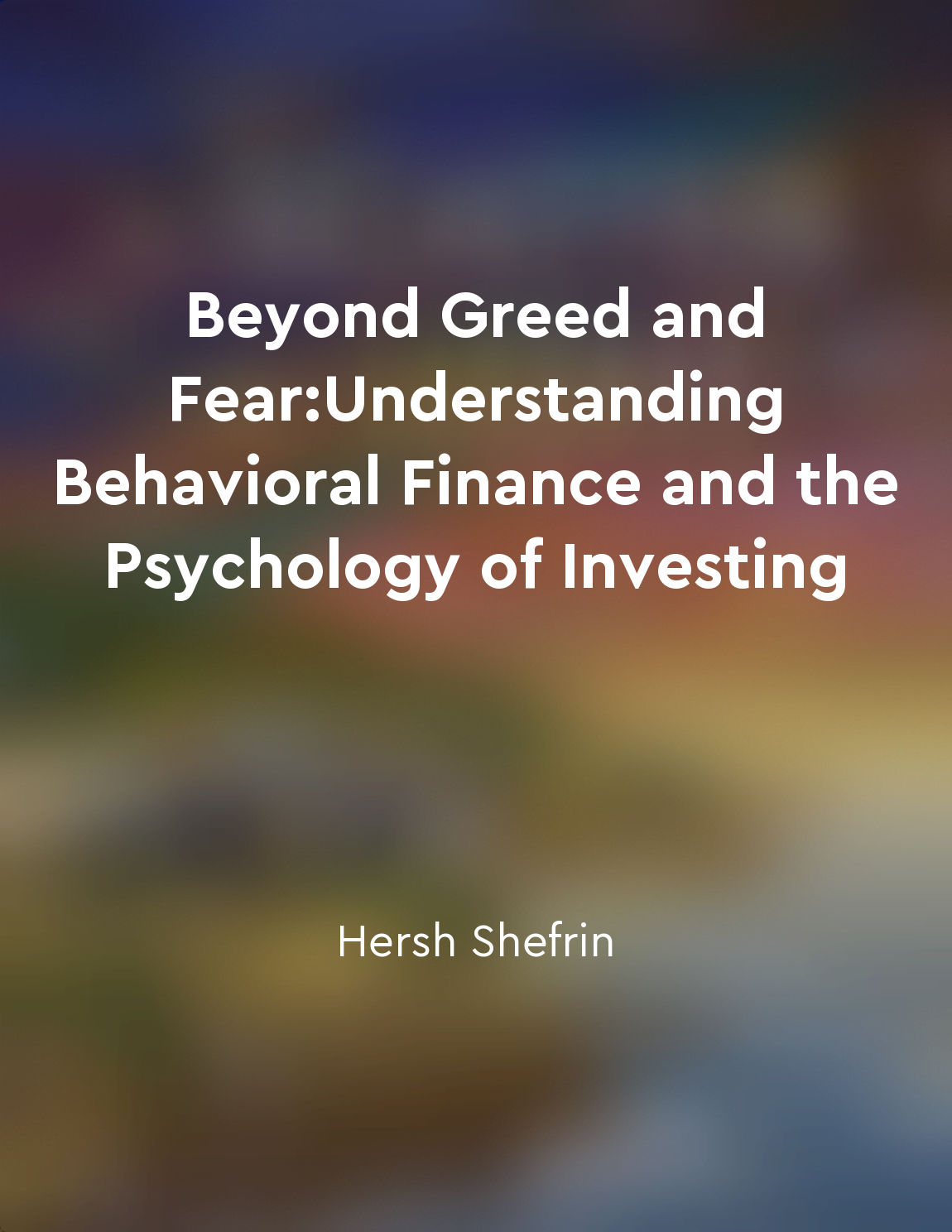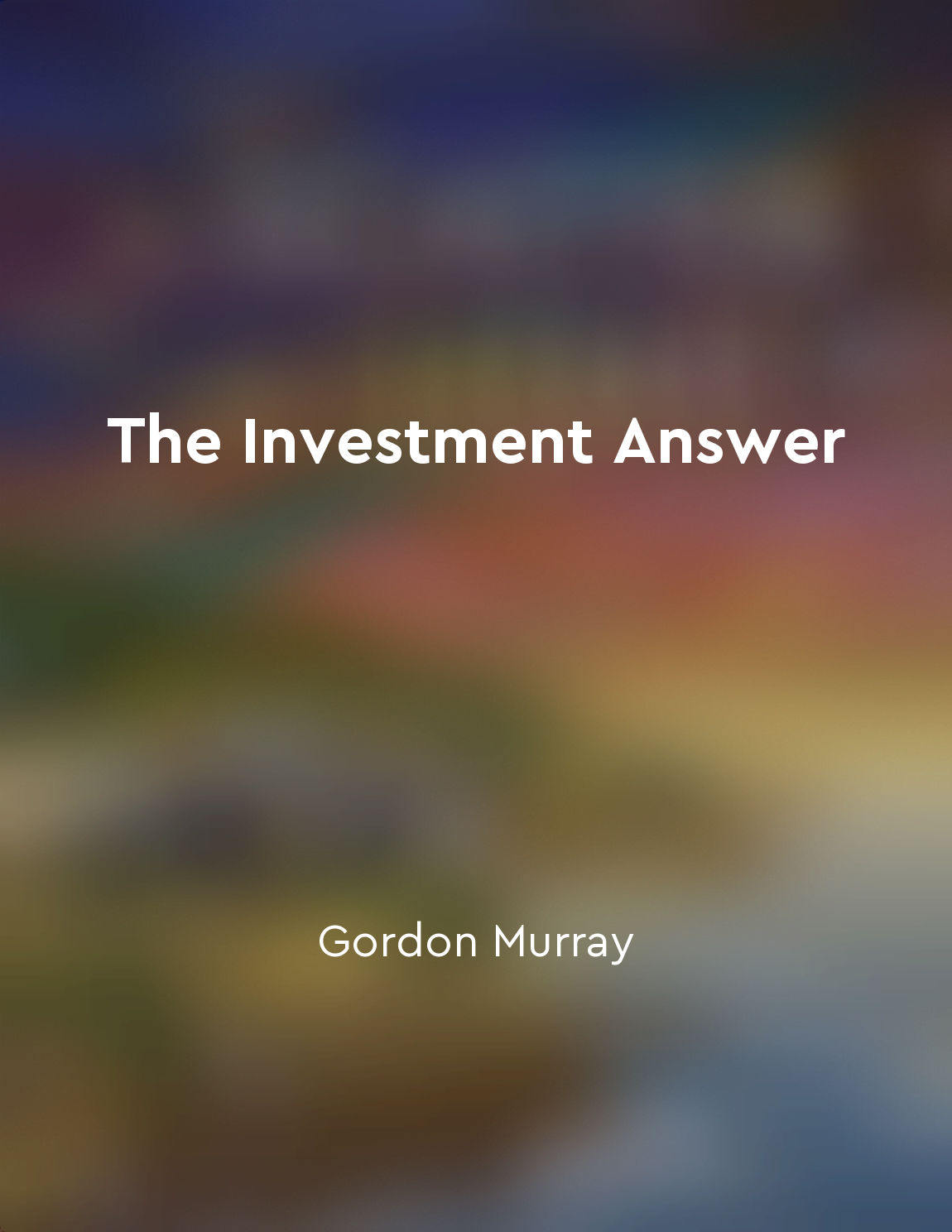Behavioral finance offers insights into market inefficiencies from "summary" of Beyond Greed and Fear:Understanding Behavioral Finance and the Psychology of Investing by Hersh Shefrin
Behavioral finance shines a light on market inefficiencies by recognizing that investors are not always rational. This field of study delves into the psychological factors that can lead investors to make decisions that deviate from the traditional rational model. By understanding these cognitive biases and emotional influences, we can gain valuable insights into why markets may not always behave in a perfectly efficient manner. One key aspect of behavioral finance is the acknowledgment that investors do not always process information in an objective and logical manner. Instead, they may rely on mental shortcuts or heuristics that can lead to systematic errors in judgment. These biases can manifest in various ways, such as overconfidence, loss aversion, or herding behavior. By identifying and understanding these biases, we can better grasp why markets may deviate from the efficient market hypothesis. Moreover, behavioral finance also recognizes the role of emotions in investment decisions. Fear, greed, and other emotions can cloud judgment and lead investors to make irrational choices. For example, investors may panic and sell off assets during a market downturn, even when it may be more prudent to hold onto them. By studying how emotions can impact decision-making, we can gain a deeper understanding of why markets may exhibit inefficiencies.- Behavioral finance offers a fresh perspective on market dynamics by incorporating insights from psychology and behavioral economics. By examining how cognitive biases, emotional influences, and other psychological factors can impact investor behavior, we can uncover the reasons behind market inefficiencies. This nuanced approach to understanding the complexities of human decision-making provides a valuable framework for analyzing why markets may not always operate in a perfectly rational and efficient manner.
Similar Posts
Be prepared for the unexpected
Life is unpredictable. No matter how well you plan, unexpected events can still occur. These events can come in many forms - fr...

The influence of selfcontrol on long-term investment success
Self-control is a critical factor in determining long-term investment success. Investors who lack self-control often succumb to...
Uncertainty can lead to hoarding
Uncertainty, which arises from the lack of confidence in the future, can have a significant impact on individuals' behavior. Wh...

Fiscal policy involves government spending and taxation
Fiscal policy is a crucial tool that governments use to influence the economy. It involves making decisions about government sp...

Buy stocks when they are undervalued
The concept of buying stocks when they are undervalued is a fundamental principle in value investing. When an investor purchase...
Stay disciplined during market fluctuations
As an investor, it is crucial to remain disciplined during market fluctuations. This means sticking to your investment strategy...
Continuously educate yourself and stay open to learning new strategies
In order to achieve success in trading stock options, it is crucial to prioritize ongoing education and remain receptive to dis...
Capital flows drive foreign exchange market dynamics
Capital flows play a critical role in determining the exchange rate of a country's currency in the foreign exchange market. The...

Take advantage of taxefficient investment strategies
To make the most of your investment returns, it’s important to consider the impact of taxes. Taxes can significantly eat into y...
Identify companies with predictable earnings
Identifying companies with predictable earnings is crucial for investors looking to maximize their returns. By focusing on busi...

